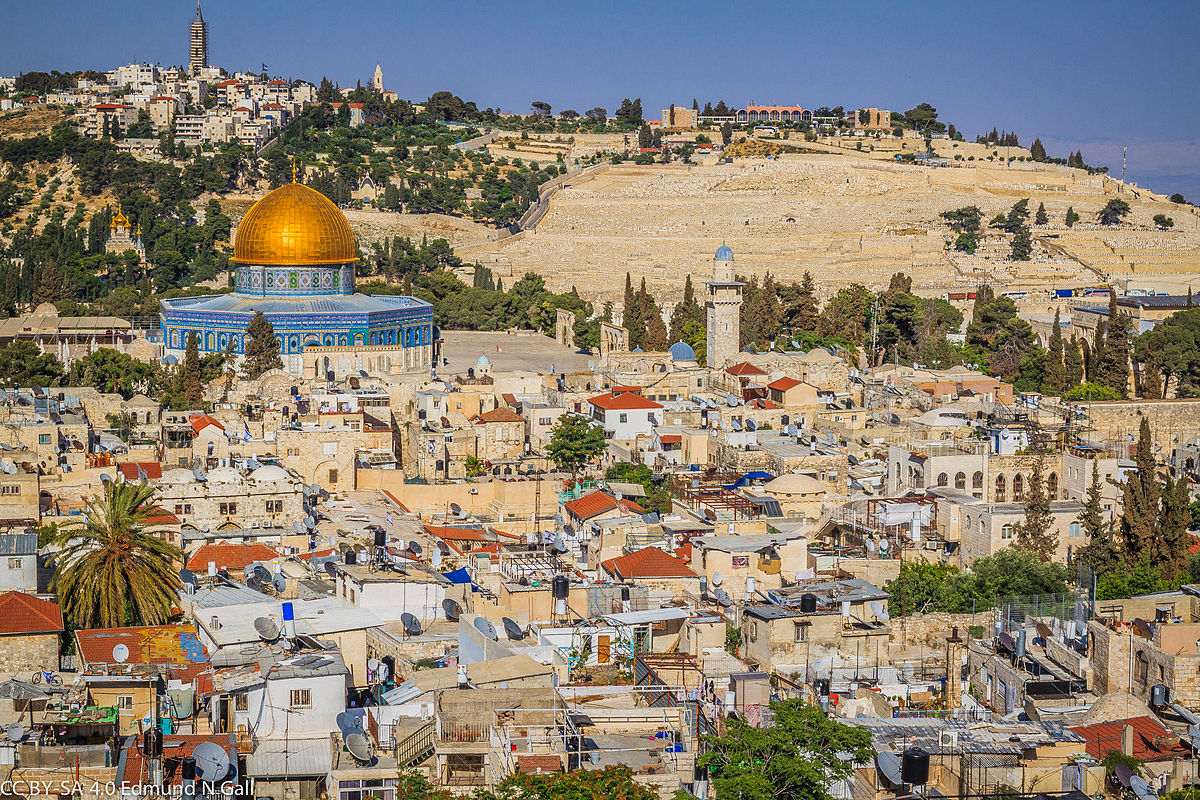
Jerusalem, the holy city nestled in the heart of the Middle East, holds a revered place in the annals of human history. Its significance transcends boundaries and touches the lives of people from various religious, cultural, and historical backgrounds. For centuries, Jerusalem has been a focal point of pilgrimage, a center of religious devotion, and a symbol of hope, unity, and strife.
The city’s history is deeply intertwined with the three major monotheistic religions: Judaism, Christianity, and Islam. It is mentioned in sacred texts and revered as a site of profound spiritual significance. For Jews, Jerusalem is the city of King David, the site of the First and Second Temples, and the eternal capital of Israel. The Western Wall, a remnant of the ancient temple complex, stands as a powerful symbol of Jewish identity and resilience. For Christians, Jerusalem is the city of Jesus’ crucifixion, resurrection, and ascension, making it a pilgrimage destination of utmost importance. The Church of the Holy Sepulchre, believed to encompass the sites of Jesus’ crucifixion and burial, draws millions of Christian pilgrims each year. And for Muslims, Jerusalem is home to the Al-Aqsa Mosque, the third holiest site in Islam, and the Dome of the Rock, believed to be the site of Prophet Muhammad’s Night Journey. The city holds deep spiritual and historical significance for all these faith traditions, making it a place of profound devotion and reverence.
Jerusalem’s history is also marked by a tapestry of conquests, conflicts, and coexistence. Throughout the centuries, empires rose and fell, each leaving their indelible imprint on the city’s landscape. From the Canaanites to the Israelites, from the Babylonians to the Romans, from the Crusaders to the Ottomans, Jerusalem became a prize sought by many. Its strategic location and symbolic value made it a coveted jewel, resulting in numerous battles and shifting control. The scars of these conflicts can still be seen in the city’s architecture, with remnants of ancient fortifications and religious structures bearing witness to the ebb and flow of history.
In the modern era, Jerusalem’s status has been a subject of international debate and contention. The city has been divided, reunified, and the subject of diplomatic negotiations. Its importance as a shared heritage site has led to efforts for peaceful coexistence, dialogue, and understanding among different religious and cultural communities. While political complexities persist, Jerusalem continues to be a testament to the resilience of human spirit and the power of faith to bridge divides.
Today, as visitors walk through the narrow streets of Jerusalem’s Old City, they are immersed in a kaleidoscope of sights, sounds, and aromas that reflect the city’s rich heritage. The calls to prayer from minarets blend with the solemn chants in churches, while Jewish worshippers gather at the Western Wall. The bustling markets, known as souks, offer a vibrant tapestry of goods, reflecting the diverse cultural influences that have shaped the city throughout history.
Jerusalem’s allure lies not only in its spiritual significance but also in its ability to transcend time and connect people to their shared human heritage. It is a city that challenges, inspires, and invites introspection. It beckons visitors to reflect on the complexities of history, the power of faith, and the common threads that bind humanity together.
In conclusion,
Jerusalem stands as a living testament to the intertwining of faith and history. It is a city that has witnessed the rise and fall of empires, the devotion of millions, and the struggles for peace and coexistence. Jerusalem’s significance extends far beyond its physical boundaries, reaching deep into the hearts and souls of people around the world. As a place of pilgrimage and spiritual reflection, Jerusalem continues to draw visitors from all walks of life, inviting them to explore its sacred sites, absorb its historical richness, and engage in meaningful dialogue and understanding.
Visiting Jerusalem is a journey that transcends religious affiliations and cultural backgrounds. It is an opportunity to delve into the depths of human history, to witness the intertwining narratives of faith and tradition, and to embrace the beauty of diversity. It is a city that challenges preconceived notions and opens doors to a deeper understanding of our shared humanity.
Walking the ancient streets of Jerusalem, one cannot help but feel the weight of history, the echoes of prayers, and the aspirations of generations past. The layers of civilizations, the holy sites, and the diverse communities living side by side serve as a testament to the enduring nature of Jerusalem’s spirit.
However, Jerusalem is more than just a city frozen in time. It is a vibrant and dynamic metropolis where ancient traditions coexist with modern life. Beyond the walls of the Old City, one can experience the cosmopolitan atmosphere, explore cultural institutions, sample a rich culinary scene, and engage with the diverse fabric of contemporary Jerusalem.
While the complexities surrounding Jerusalem’s status and its role in political debates continue, it is crucial to remember the significance of this city to millions of people worldwide. Jerusalem represents a profound connection to the divine, a pilgrimage of the soul, and a testament to the enduring power of faith.
Visiting Jerusalem offers an opportunity for personal introspection, fostering a deeper appreciation for the values of peace, tolerance, and understanding. It reminds us of the importance of safeguarding the cultural heritage of this ancient city and working towards a future where Jerusalem can serve as a beacon of hope, unity, and coexistence.
In the end, Jerusalem remains an epicenter of faith and history—a place that leaves an indelible mark on the hearts of those who journey within its walls. It is a reminder of our shared human legacy, an invitation to embrace diversity, and a call to seek peace and harmony amidst the complexities of our world. May Jerusalem continue to inspire and guide all who embark on a pilgrimage to its sacred lands.
